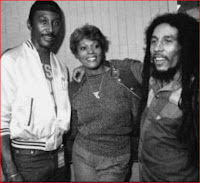A CLASSICAL SOUL
Celebrity. Fame. Popularity. Notoriety. Adulation.
Those are very thorny seats to occupy. If you are a true artist that is willing to unveil your art to the public, it’s certainly not unreasonable to expect some level of acknowledgement in return. In a perfect union, the public’s interest will dictate what that level of acclaim (monetary or otherwise) that your art receives. But this union is far from perfect. As such there are faceless people that have way too much “influence” as to what passes as art and what gets hidden or trashed. Nowadays people are too busy grappling with their day-to-day battles to question the faceless Klansmen that are streaming this poisonous, repetitive music that seeps in the community like a filtration system built in Flint Michigan. The community’s understandable indifference makes it much easier for these puppeteers to become the art police—and you don’t have to live in Minneapolis to understand that endangerment. In this age of “followers” even if the people wanted to rebel against this systemic deceitfulness, it would take a level of revolt far greater than burning down a few local Targets.
In many ways today’s musicians are akin to Harriet Tubman’s [alleged] proclamation: “I freed a thousand slaves and I could have freed a thousand more if only they knew they were slaves.” Therefore many of our genuine geniuses are faced with the internal struggle between commerce & consciousness. It may be easy to choose one over the other, but it’s nearly impossible to have both — especially when the former feeds your family, while the latter feeds their legacy. James Yancey was one of those extreemly rare artists that managed to have both. Oh, in case you are scratching your head, wondering who is James Yancey..., you are in for a true awakening. For the rest of you, you already know this is going to be one of the LPs every black household should have.
James Yancey was better known by his producer extraordinaire name of J. Dilla. And to understand Dilla’s music you first need to understand the unique person he was. The Detroit child prodigy’s life seemed scripted from conception. He was born to an opera singing mom and a bass playing dad—both natives from NYC -- the not –so-coincidental birth home of Hip Hop. As an infant, his mom recalls: “Dilla crying and simply refusing to go to sleep unless his dad played or performed some rendition of jazz.”
At age 5, Dilla began to study the cello, which certainly didn’t go over well with his grade school peers, whom threatened and teased him on their (ironic) bus rides to school through the city of Motown. The endless teasing only made Jay Dee more head strong, which will later play a significant role in his acrimonious career in the music industry. As Jay Dee grew he added the piano, the drums, the guitar and lead choir director to his matchless musical repertoire. Although jazz music was his DNA, Dilla was also a master in physics. Therefore, after graduating from middle school, his mom enrolled him in the Davis Aerospace Technical High School. He quickly dropped out because he couldn’t deal with the structure nor the uniforms. His mom was irate at his exit…, and in true Dilla form his only response to her was…. ”there isn’t an Aerospace school in the world that had better parties.” Oddly enough, it was the technical curriculum that he experienced at the Davis School that helped him to understand music better—something a vinyl D.J. would really understand and truly appreciate.
On February 10, 2006, at the tender age of 32, James Dewitt Yancey died from a combination of a rare blood diseases TTP and lupus. In true Dilla fashion, he continued making beats while he was hooked up to a dialysis machine. And when he didn’t have the strength to program the buttons, his mom (at his request) would massage his fingers so he could continue to make music. He completed his last LP while strapped to the hospital bed; and it was released 3 days after his death..., right after his 32nd birthday.
 |
| The D's Last Dance |
The final LP is called Donuts, an unconfirmed tribute to his childhood sweetheart who worked at Detroit’s Dutch Girl Doughnuts Shop.
I would love to write a book about J. Dilla’s unique impact and his production credits that include: Erykah Badu, A Tribe Called Quest, Pete Rock, Dwele, Jill Scott, De La Soul, Mos Def, Bilal, The Roots, Talib Kweli, Common, D’ Angelo, Heavy D, Kanye West, Busta Rhymes and his Conant Gardens gang, Slum Village. But in lieu of my literary procrastination, I instead want to share the ultimate tribute to J. Dilla’s legacy called....
 |
| Niño & Atwood-Ferguson lead Mochilla Presents |
 |
| Maureen “Ma Dukes” Yancey |
Timeless: Suite For Ma Dukes - The Music Of James "Dilla" Yancey
 |
Various Artists vinyl release March 10, 2009 Traffic Ent. |
We are at the halfway point of this 12-month Soul Sessions reviews and it just feels like the perfect time to enjoy an intermission.
Ray Lewis






























